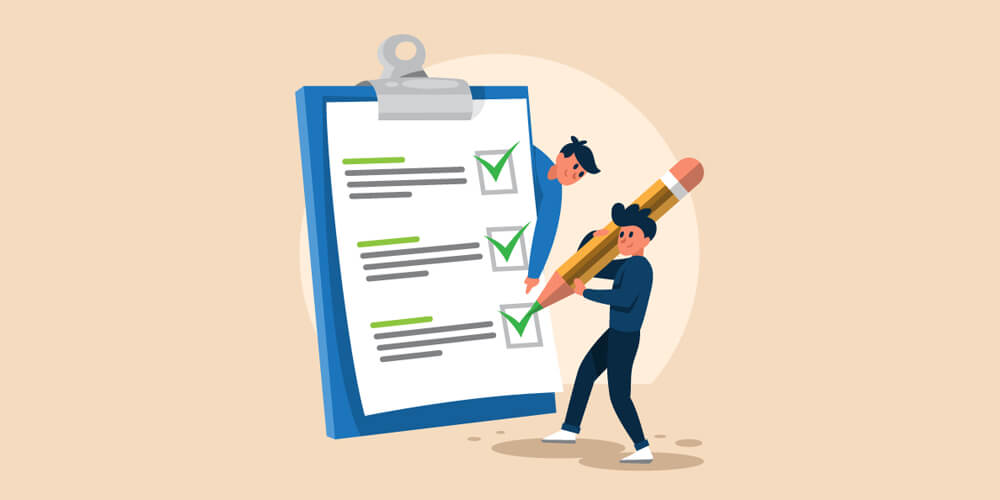Taking out a loan for the first time can be an exciting yet overwhelming experience. Whether you’re applying for a personal loan, a mortgage, or an auto loan, understanding the loan eligibility requirements is crucial to ensure that you meet the necessary criteria and increase your chances of approval. As a first-time borrower, navigating the world of loan eligibility can seem complex, but with the right information, you can approach the process with confidence. In this article, we will provide a comprehensive loan eligibility checklist that first-time borrowers should follow before applying for any loan.
- Check Your Credit Score
Your credit score plays a significant role in determining your loan eligibility. Lenders use this score to assess how likely you are to repay the loan. A higher credit score generally means you’re less of a risk to the lender, which can result in better loan terms, including lower interest rates and higher loan amounts. For first-time borrowers, it’s essential to check your credit score before applying for a loan.
Most lenders prefer a FICO score of at least 650 to 700 for unsecured loans, but the exact requirement may vary based on the type of loan and lender. If your credit score is lower than desired, consider improving it by paying off existing debts, reducing credit card balances, and ensuring timely payments. Additionally, request a copy of your credit report to check for errors and correct any inaccuracies that could impact your score. - Assess Your Income and Employment Status
Lenders want to be confident that you can repay the loan, which is why they assess your income and employment status during the eligibility process. Having a stable income is essential for loan approval, especially as a first-time borrower. Lenders typically ask for documentation such as pay stubs, tax returns, or bank statements to verify your income and employment history.
For most loans, you’ll need to prove that you have a consistent and sufficient income to meet the monthly payments. For example, mortgage lenders often require that your monthly housing costs (including mortgage payment, taxes, and insurance) do not exceed a certain percentage of your gross monthly income. A steady job with a history of earning a reliable income can improve your chances of getting approved for a loan. - Understand Your Debt-to-Income Ratio
The debt-to-income (DTI) ratio is a key factor that lenders use to determine whether you can manage additional debt. This ratio is calculated by dividing your monthly debt payments by your gross monthly income. A lower DTI indicates that you are less burdened by existing debts and are more likely to be able to manage new loan repayments.
For first-time borrowers, lenders typically prefer a DTI ratio of 36% or lower, but some may accept ratios up to 43%. If your DTI ratio is high, it may be beneficial to pay down existing debts or increase your income before applying for a loan. By lowering your DTI, you improve your chances of qualifying for a loan with better terms and interest rates. - Consider the Type of Loan You Need
As a first-time borrower, it’s crucial to understand the different types of loans available and their specific eligibility requirements. For example, mortgage loans may require a down payment and proof of property value through an appraisal, while personal loans may only require proof of income and identification. Each loan type has different documentation requirements, so make sure to research the eligibility criteria for the specific loan you’re applying for.
If you’re a first-time homebuyer, you might qualify for special loan programs such as FHA or VA loans, which offer more lenient eligibility requirements. Similarly, first-time auto buyers may benefit from specific financing options with lower rates or smaller down payments. Knowing the type of loan that best suits your needs will help you prepare the right documentation and increase your chances of approval. - Prepare Your Collateral (For Secured Loans)
For some loans, such as auto loans or mortgages, you may need to provide collateral to secure the loan. Collateral is an asset, such as your car or home, that the lender can take possession of if you default on the loan. First-time borrowers applying for secured loans should be aware that the lender will evaluate the value of the collateral to ensure it covers the loan amount.
Before applying for a secured loan, ensure that the asset you’re offering as collateral is in good condition and valued appropriately. Keep in mind that if you default on the loan, the lender has the right to seize the collateral, so it’s important to carefully consider your ability to repay before taking out a secured loan. - Review Your Loan Terms and Conditions
Before applying for any loan, it’s essential to fully understand the loan terms and conditions. Review the interest rate, repayment schedule, fees, and penalties associated with the loan. Some loans may come with hidden charges, such as origination fees, prepayment penalties, or late payment fees, so it’s important to be aware of these costs before committing to a loan agreement.
As a first-time borrower, take the time to shop around and compare loan offers from multiple lenders. This will allow you to find the loan that best suits your financial situation and gives you the most favorable terms. Additionally, if you don’t fully understand certain terms or conditions, don’t hesitate to ask the lender for clarification.
Conclusion
Being a first-time borrower can be a daunting experience, but with the right preparation and understanding of loan eligibility requirements, you can navigate the process with confidence. By checking your credit score, assessing your income, understanding your debt-to-income ratio, and reviewing the loan type and terms, you can ensure that you meet the lender’s requirements and increase your chances of approval. Make sure to carefully evaluate your financial situation before applying for any loan to ensure that you’re making a sound decision for your future.
